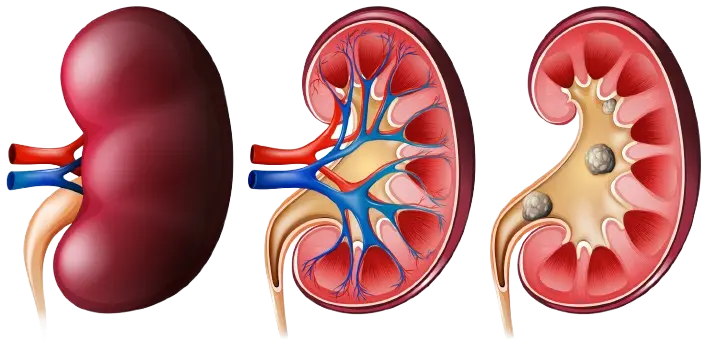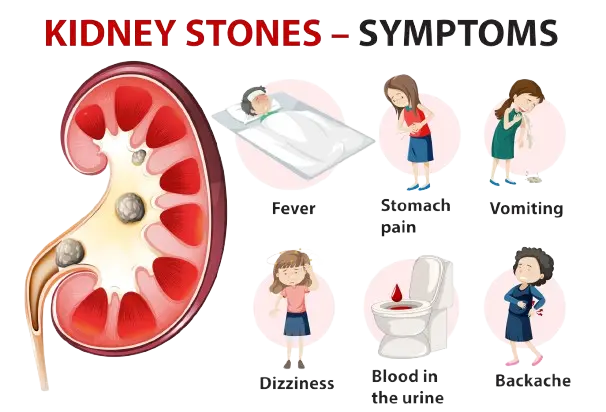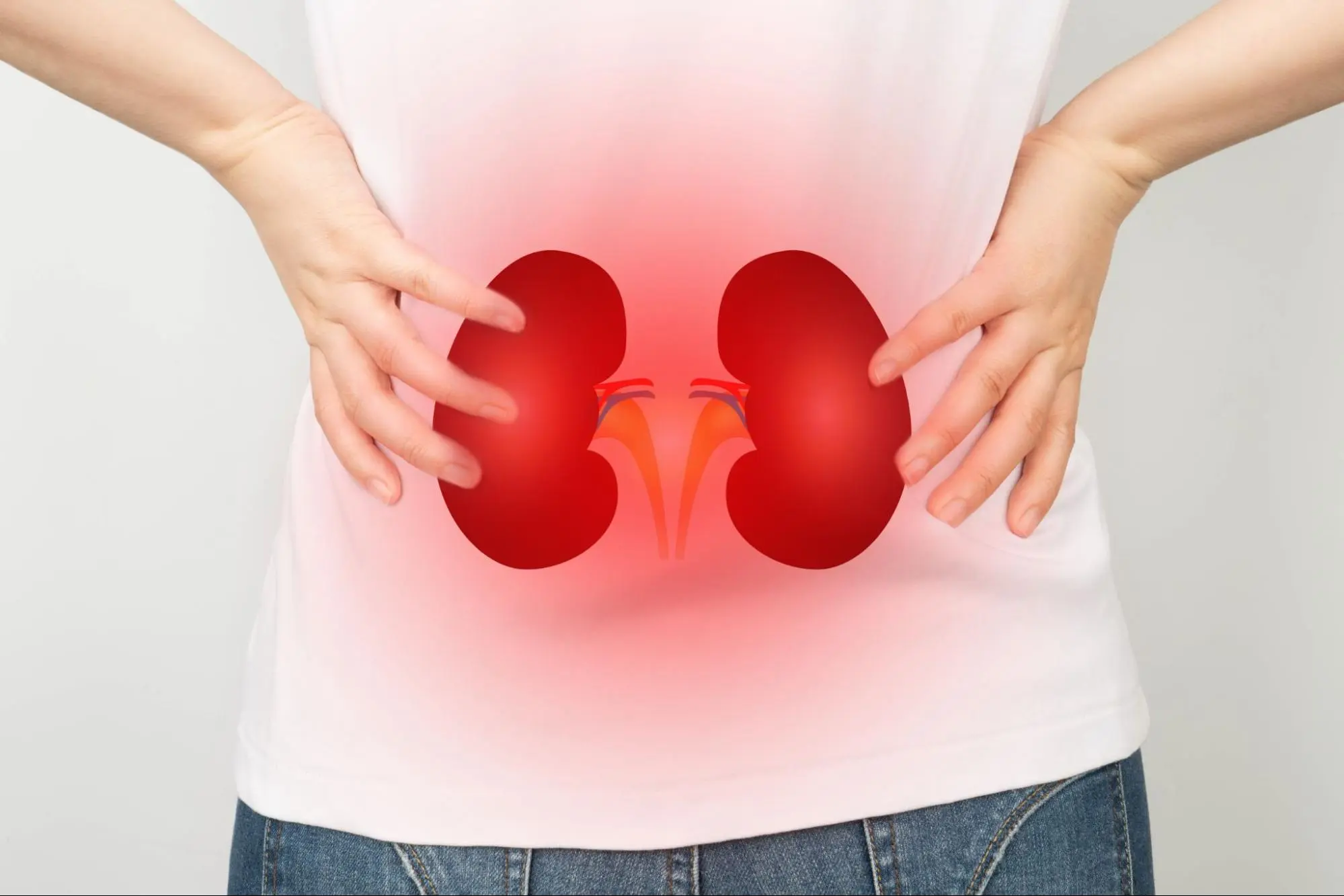Kidney stones can develop silently and suddenly cause severe pain. But what if you could spot the early signs before things get worse? Understanding kidney stone starting symptoms can help you act early and avoid serious discomfort or complications.
This article will help you recognize those first warning signals your body may be sending. Whether you’ve had stones before or are concerned due to lifestyle or family history, being informed is the first step toward managing the problem.
Let’s talk about the early symptoms of kidney stones in simple terms – and what you can do about them.

What Are Kidney Stones?
Kidney stones are hard deposits made of minerals and salts that form inside your kidneys. They can vary in size-from as small as a grain of sand to as big as a golf ball.
They don’t always cause symptoms when small, but as they grow or move, they can block the flow of urine, triggering pain and other issues.
Why Do Kidney Stones Happen?
Several factors can lead to kidney stones, such as:
- Not drinking enough water
- Eating too much salt, sugar, or protein
- Obesity or a sedentary lifestyle
- Family history of kidney stones
- Certain medical conditions like urinary tract infections or gout
The good news? Early detection can make treatment easier and recovery quicker.

Kidney Stone Starting Symptoms You Shouldn’t Ignore
When it comes to kidney stones, the earlier you notice something’s off, the better. Here are common kidney stone starting symptoms you should look out for:
1. Mild Pain in the Side or Lower Back
At the start, you might feel a dull ache in your side, back, or lower belly. It often begins on one side and might come and go.
Tip: Don’t ignore persistent or unusual back pain – especially if it’s not related to physical activity.
2. Frequent Urge to Urinate
Do you suddenly feel like visiting the bathroom more often than usual?
Kidney stones can irritate the lining of your urinary tract, making you feel like you need to urinate – even if not much comes out.
3. Burning Sensation While Urinating
That sharp, burning pain when you pee could be more than a UTI. Kidney stones that move toward the bladder often cause similar irritation.
4. Cloudy or Smelly Urine
Changes in your urine’s appearance or odor might be one of the earliest signs of trouble. It can signal infection or the presence of minerals forming into stones.
Look for:
- Cloudy urine
- Strong or foul smell
- Pink or reddish tint (a sign of blood)
5. Nausea or Vomiting
As the stone irritates the kidney or blocks urine flow, you might feel sick or even vomit. This is due to the body’s response to pain and imbalance.
When to See a Doctor for Kidney Stone Starting Symptoms
While some small stones pass on their own, you should never delay seeking help if:
- Pain becomes sharp or unbearable
- There’s blood in your urine
- You develop a fever or chills
- You can’t urinate or only release small amounts
These symptoms may signal a larger stone or an infection that needs urgent care.
At Shifa Hospitals, our urology specialists use advanced imaging and lab tests to diagnose and treat kidney stones with precision-often before the pain becomes severe.
Kidney Stone Prevention Tips After Early Symptoms Appear
What to Do When You Notice Kidney Stone Starting Symptoms
Prevention is always better than cure, especially when it comes to kidney stones. Here are some ways to reduce your risk:
Stay Hydrated
Drinking plenty of water helps flush out the substances that form stones. Aim for at least 8-10 glasses a day.
Watch Your Diet
Limit:
- Excessive salt
- High-oxalate foods (like spinach, chocolate, and nuts)
- Sugary drinks
- Excessive meat intake (especially red meat and organ meats)
Include:
- Citrus fruits (they help break down stone-forming crystals)
- Calcium-rich foods (to bind oxalates)
Stay Active
Being physically active improves kidney function and helps maintain a healthy weight-both important for stone prevention.
Don’t Skip Checkups
If you’ve had a kidney stone before, regular follow-ups can help you monitor your kidney health and make early interventions if needed.
Final Thoughts: Listen to Kidney Stone Starting Symptoms Before It’s Too Late
Kidney stones don’t always scream for attention at first. The symptoms might be subtle – but they matter.
By recognizing kidney stone starting symptoms like mild pain, changes in urination, or nausea, you give yourself the best chance at early treatment and less discomfort.
If you’re unsure whether your symptoms could be related to kidney stones, don’t wait. Speak with a medical professional or visit a hospital that understands how to handle the problem from the start.
